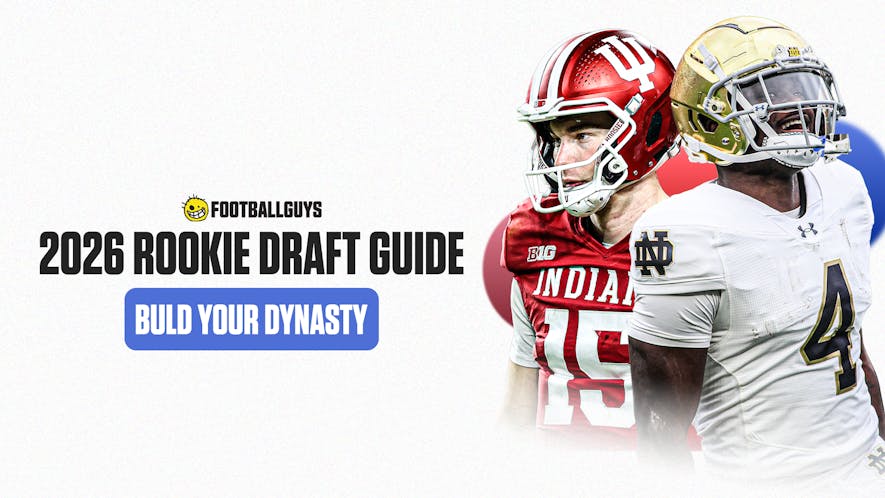There's a lot of strong dynasty analysis out there, especially when compared to five or ten years ago. But most of it is so dang practical—Player X is undervalued, Player Y's workload is troubling, the market at this position is irrational, and take this specific action to win your league. Dynasty, in Theory is meant as a corrective, offering insights and takeaways into the strategic and structural nature of the game that might not lead to an immediate benefit but which should help us become better players over time.
Paradoxes and Defunct Leagues
Last week, I took a look at the half-life of dynasty, going over data from my own dynasty career to ballpark how long a manager might expect to remain in control of their team (with plenty of caveats about the representativeness of the data, maybe somewhere around 5 seasons on average). I then ended with this: "Whether the estimates are accurate or not, I think the exercise is useful. I would encourage you to think seriously about how long you are likely to be managing your team, and especially to consider the role of factors you can't anticipate... Most importantly, once you have an over/under for years remaining, ask yourself whether it changes how you manage your team—or whether it should."
This week I want to focus more on those last four words. In hindsight, they seem quite leading; of course the realization that you might not be around to benefit from the long-term moves you make today should impact your willingness to make them, right?
But I'm generally not a fan of leading questions, and I'm especially not a fan of normative statements. In fact, I have asked myself that same question several times over the years, and the answer I always come back to is... no. This knowledge doesn't change how I manage my teams, nor do I think it should.
A Personal Example
I mentioned a league of mine that lasted eleven years, from 2013 to 2023. My team was fairly successful overall—ranking in the Top 3 in all-play win% (53%), playoff appearances (7), championship appearances (3), and titles won (2). Just as importantly, at the end, it was the most valuable team in the league by a huge margin.
According to all three of my most commonly cited measures of team value (Fantasycalc, KeepTradeCut, and Dan Hindery's Trade Values), my team was at least 20% more valuable than any other team, which (as we know) suggests it was best-positioned to win championships had the league continued. But had I known the league was destined to go under, I could have spent less time playing the long game, traded much of that value for immediate contributors, and possibly added another championship or two to my final tally.
Could I have, though?
Newcomb's Paradox and You
In 1960, a theoretical physicist named William Newcomb presented a thought experiment. (Thought experiments, as I've mentioned before, are my favorite type of experiment because they're like doing science, but without any of that messy "gathering data" nonsense.)
The thought experiment was named—appropriately enough—"Newcomb's Paradox". It goes thusly: imagine you are approached by an entity known only as "The Predictor" who proposes a game. The Predictor will place two boxes in front of you. One box (box A) is transparent and clearly contains $1,000. The second box (box B) is opaque and contains either $1,000,000, or it contains nothing. You are free to open either or both boxes and take the contents inside, but once you have opened box B, box A becomes inaccessible; if you want that $1,000, you have to open that box first.
Here is the twist: the Predictor's title is not merely an affectation. Instead, the entity claims to be able to predict human behavior with incredible—perhaps even perfect—accuracy. Whether the Predictor is an alien being, or an immensely powerful supercomputer, or a clairvoyant, or a visitor from the future, you find its claims to be highly credible. You truly believe that it can predict human behavior with incredible—perhaps even perfect—accuracy.
Before the game begins, the Predictor will make a prediction about what you will do. If it believes you will open both box A and box B, it will leave box B empty. If it believes you will open only box B, leaving the $1,000 in box A untouched, it will place one million dollars in box B.
Having made its prediction, the Predictor will set both boxes down and leave you to the game. Once the boxes are placed, it can no longer change what is inside them; indeed, it goes away entirely without looking back, never actually knowing for sure which choice you have made.
What do you do?
The Correct Answer
Continue reading this content with a ELITE subscription.
An ELITE subscription is required to access content for Dynasty leagues. If this league is not a Dynasty league, you can edit your leagues here.


